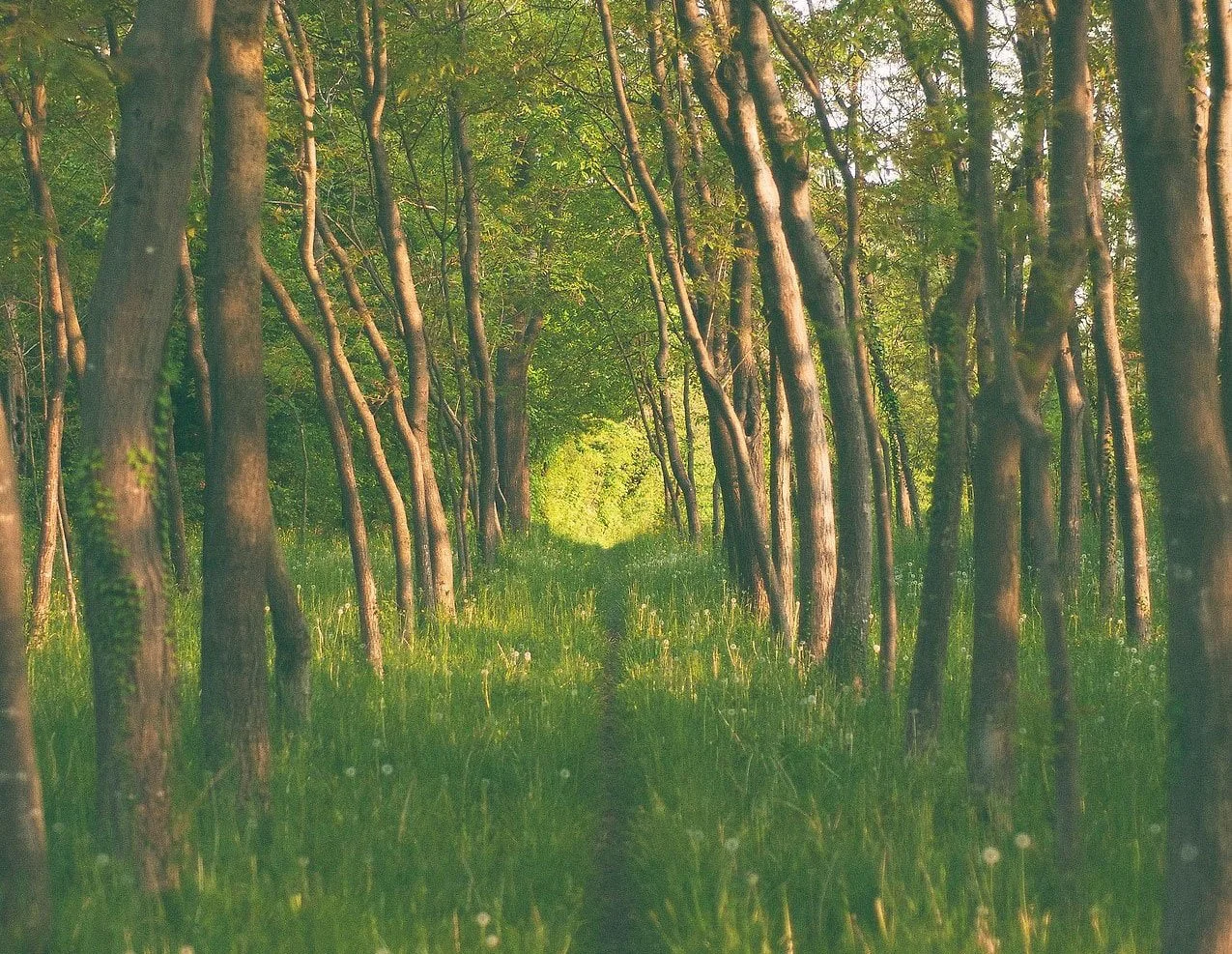Weaving together the ephemeral worlds of emotion and Indigenous identity with the grounding power of shared values and reciprocity, Sky reminds us that art is meant to provoke, inspire, and make the space needed for feeling to emerge.
Read MoreTyson contemplates how we may open ourselves up to being beckoned outside of the ego, and how we may resist the individualizing neoliberal urge—decolonization is not just about poetry, or word, or aesthetics, and how we must be materially and fiscally decolonial for the real work to be done.
Read MoreLayla shares the power and perseverance of homeland, even in the face of colonial violence. As the genocide in Palestine continues and worsens, Layla offers a powerful call to listen to our rage and take real action against empire.
Read MoreJason offers his deep wisdom about the ecological, spiritual, and cultural importance of buffalo, detailing the health benefits of eating buffalo, the ecological benefits of their migration and grazing, and the healing benefits of connection to these animals.
Read MoreAbena points out, farmers are the archivists of the land, and farmers and communities have continued to preserve local foodways—saving seeds for future generations. If we recognized the true value of local foods, what capitalistic practices might we be able to evade?
Read MoreTyson calls us to unbrand our minds and deeply interrogate where we are sourcing our thoughts from, the ramifications of becoming a trauma-obsessed society, and how to identify environments for emergence.
Read MoreSamuel Bautista Lazo brings listeners into an insightful conversation on the value of craftwork that connects us to the past and plants seeds for the future emphasizing the radical act of creating connection and meaning with the objects we need to sustain life.
Read MoreJosué invites us to challenge extractive and colonial lenses by embracing the overwhelming force of the creative urge. How might we break apart from the constant pressure of social media to envision the new modes of creation and creativity that these stories need in order to be told?
Read MorePart two of the conversation between brontë and Tiffany spans further inquiry into shoals, the physical desire to belong to Earth, agency, eros, spiritual correction, the pleasure and potential of failure, and that which cannot be translated, but instead has to be experienced or co-witnessed to be understood.
Read Morebrontë and Tiffany explore sacred laughter, Black and Indigenous feminism, sexuality, liberation, ceremony, and protocol. This simultaneously intimate and expansive dialogue allows us to rethink the stories and structures we’ve been told regarding Black and Indigenous relations.
Read MoreYoalli brings us to the Chacahua-Pastoría Lagoons in Oaxaca, Mexico, to investigate deep connections with land, ongoing colonial violence, and the grief that comes alongside loving a place; a heartening conversation about the importance of ecological grief, rage, and sadness.
Read MoreClaudia digs deep into food and the memories around it– from ancestral memory, to the way tastes for food are passed down through the womb. Claudia explains what it might mean to eat for the next seven generations, and how such future visions are tied to a greater decolonial project, as decolonizing the body and the landscape also means decolonizing the kitchen.
Read MoreDr. Carroll pushes back against dominant settler histories about Cherokee migrations and relations to homeland and provides insight into what audience members ought to glean from Indigenous philosophies imparting practices of deep reciprocity, responsibility, and relationship to the land and each other.
Read MoreDr. Osorio guides us into a fuller understanding of aloha by returning the commodified phrase to the more extensive understanding of aloha ‘āina, wherein the possibilities for other worlds are not only born but remembered and recalled from the long history of sovereign Hawai’i and traditional Hawaiian teachings and lifeways.
Read MoreAyana and Linda discuss what will be left in the wake of COVID-19, how will we tend to the wounds of disposability? What systems will endure? What must we dismantle and what will we grow? How can we deepen our actions so that they are not just a response to fear, but are rooted in the promise of collective wellbeing?
Read MoreRichie and Ayana examine how harmful patriarchy is to us all, why we must let go of our limited understanding of crime, the geography of prisons, and meaningful and revolutionary organizing in prisons.
Read MoreTiokasin shares about the savior mentality that can arise when we act to address the many issues that threaten Earth and kin at this moment. Rather than being guided by solutions and salvation, we acknowledge where we are at in this consciousness and how we can challenge ourselves to give back to the Earth without intrusion.
Read MoreK’asheechtlaa shares the oral history of herring abundance in context to what a typical herring harvest looks like today, industry’s inability to act with reverence, and how Herring Protectors are working to protect the herring and the culture tied to them.
Read MoreThis episode braids together the history of the Gold Rush and colonization in B.C., the state of salmon, the practice of free, prior, and informed consent, dirty mining for a “clean” energy revolution, and the urgent necessity of reform.
Read More



![CORRINA GOULD on Settler Responsibility and Reciprocity [ENCORE] /355](https://images.squarespace-cdn.com/content/v1/5403e5dbe4b04db10d1d362b/1699464255679-MHWAKOUODL46ZO5OF6RV/Corrina-Gould_ForTheWild-Episode.png)


![TYSON YUNKAPORTA on Unbranding Our Mind [ENCORE] /328](https://images.squarespace-cdn.com/content/v1/5403e5dbe4b04db10d1d362b/1679438620815-FQQCOGTM00WXBA9K5R4W/Tyson-Yunkaporta_For-The-WIld-Podcast_Episode1x1.jpg)


![TIFFANY LETHABO KING on The Black Shoals [with brontë velez], Part Two /316](https://images.squarespace-cdn.com/content/v1/5403e5dbe4b04db10d1d362b/1670886696027-B18TPEPB1F02GVOCNCRM/Tiffany-Lethabo-King_For-The-Wild_Episode2.jpg)
![TIFFANY LETHABO KING on The Black Shoals [with brontë velez], Part One /315](https://images.squarespace-cdn.com/content/v1/5403e5dbe4b04db10d1d362b/1670276370810-8C4398YL28P1N7EDZ8OG/Tiffany-Lethabo-King_For-The-Wild_Episode1.jpg)




![LINDA BLACK ELK on What Endures After Pandemic [ENCORE] /293](https://images.squarespace-cdn.com/content/v1/5403e5dbe4b04db10d1d362b/1586810356340-THJYPOB41BMWE1GAZ9EH/171_LindaBlackElk_For-The-Wild-Podcast_Image.jpg)
![RICHIE RESEDA on Dismantling Patriarchy [ENCORE] /292](https://images.squarespace-cdn.com/content/v1/5403e5dbe4b04db10d1d362b/1566236374984-HQZYYRFK2VASBC6UROFV/134_Richie-Reseda_For-The-Wild-EpisodeImage_1x1-2.png)
![TIOKASIN GHOSTHORSE on the Power of Humility [ENCORE] /290](https://images.squarespace-cdn.com/content/v1/5403e5dbe4b04db10d1d362b/1623180379152-MP8HZH6QM7RC5L0A63HT/Tiokasin-Ghosthorse_For-The-Wild-Podcast_Episode.jpg)
![K’ASHEECHTLAA - LOUISE BRADY on Restoring the Sacred [ENCORE] /288](https://images.squarespace-cdn.com/content/v1/5403e5dbe4b04db10d1d362b/1614952742229-R4ZLOOCN8CIQUX3MP6MX/Louise-Brady_For-The-Wild_Yaa-at-Woone_Still-4_Lee.jpg)
![InTheField: NUSKMATA (Jacinda Mack) on the Gold Rush That Never Ended [ENCORE] /287](https://images.squarespace-cdn.com/content/v1/5403e5dbe4b04db10d1d362b/1652476402344-LD4Q8HNNGSZLSVNBXLV1/NUSKMATA_ForTheWild_Episode2.jpg)